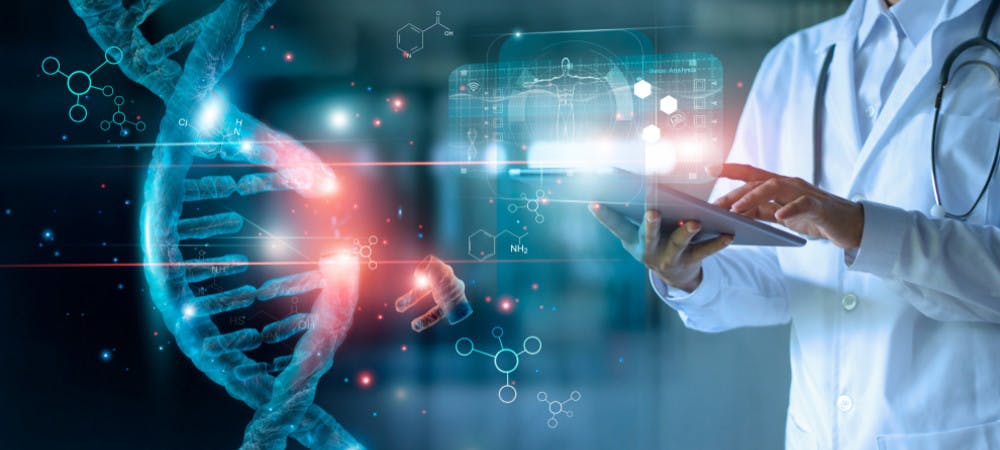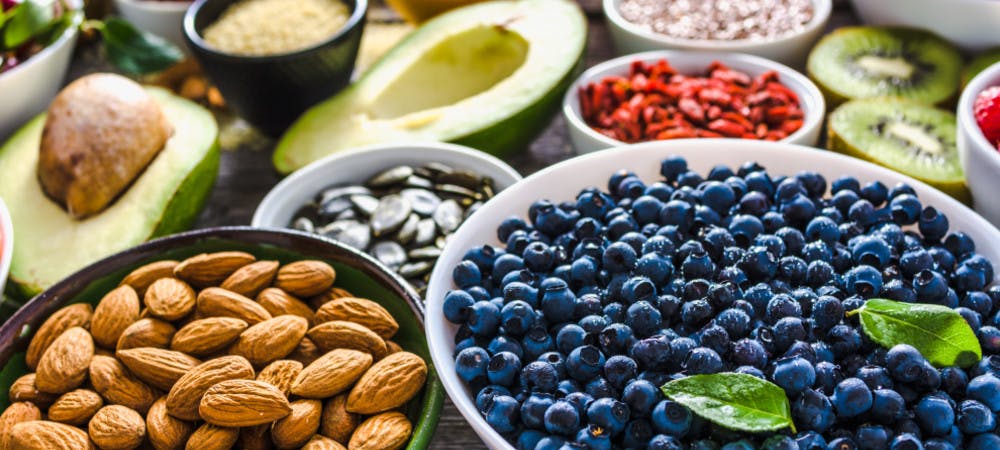Dr. Atanas G. Atanasov is an international expert in the area of Biotechnology, Molecular Medicine, Nutrigenomics and Natural Products.
He is currently Head of the Molecular Biology Department at IGAB PAS (Poland), Editor-in-Chief of Current Research in Biology (Elsevier), and a Visiting Lecturer at the Department of Pharmacognosy, University of Vienna (Austria).
Moreover, he is the Founder and Executive Director of the International Natural Product Science Taskforce (INPST).
Today we would like to discuss the potential and the role of nutrigenomics and natural products in the area of healthy longevity and age science sector.
How did your journey in biotechnology start?
Dr. Atanasov: My interest was driven from childhood by science fiction movies and books, which were making bold forecasts on spectacular future biotechnology achievements. These captivated my imagination and motivated me to enroll in a Biotechnology Master of Science program at the university at which I studied.
What is so fascinating about biotechnology?
Dr. Atanasov: While biotechnology is a science with a very ancient origin (for example with the traditional use of microbial fermentation technologies for the production of cheese, wine, and beer), the recent progress in molecular biosciences and technology are opening completely new opportunities for biotech applications with the potential to entirely transform the society – ranging from gene therapy for the treatment of previously incurable disease to the rational “engineering” of superior agricultural crops or gene-modified microorganisms with industrial applications.

The recent progress in molecular biosciences and technology are opening completely new opportunities for biotech applications with the potential to entirely transform the society.
What are the most recent trends in the use of natural products for disease prevention?
Dr. Atanasov: There are ongoing efforts to better understand molecular mechanisms of the action of natural products, in order to develop new drugs or dietary supplements for better disease prevention and therapy, and ultimately life extension. If I have to name one very important work directly related to the application of natural products as drugs and food supplements, respectively, my choices are the following:
1) In the context of the use of natural products as drugs, especially important and urgent work direction is the identification of new therapeutic natural products for combating antibiotic-resistant microbes. The ongoing spread of antibiotic resistance was reported to already account for 700,000 deaths per year in 2016, and is expected to reach 10 million deaths per year in the following 35 years [1]. The absence of effective antibiotics is threatening to have catastrophic consequences for the entire modern medical system, since even simple surgical procedures are becoming life-threatening with the risk for sepsis caused by antibiotic-resistant microbes. Since most of the currently used antibiotics are derived from natural products, the intensification of the search for new natural molecules with the potential to kill antibiotic-resistant microbes is of tremendous importance.
2) In the context of the use of natural products as food supplements, my choice for a highly promising trend is the application of natural products to modulate microbiota in the digestive system. It is increasingly recognized that gut microbiota has a tremendous impact on health and disease status in general [2]. Natural products taken as food supplements can impact on microbiota, and consequently exhibit a range of diverse health effects. This is an entirely new area for the rational application of natural products as food supplements, with a very large potential to achieve a broad range of health-promoting effects.
What are the possible future applications of natural products leading to increasing our healthy life span?
Dr. Atanasov: Personalized medicine is the future. The progress in the understanding of molecular mechanisms of therapeutic action in combination with big data generated from “omics” techniques (genomics, proteomics, metabolomics, etc.) and computational advances (including machine learning/ artificial intelligence) will inevitably result in personalized applications of natural products, both as drugs and as dietary supplements optimally tailored to the conditions/needs of specific patients or consumers.
What kind of natural products are the most promising for preventing diseases?
Dr. Atanasov: There are many natural products with well-documented health benefits; I will just briefly mention two of the most popular plant-derived beverages: coffee and cocoa. The health benefits of both coffee and cocoa are very well documented with human clinical studies. The beverages prepared from both coffee and cocoa beans are very rich in polyphenolic compounds, reported to have a broad range of biological properties. The highest-grade scientific evidence of health benefits comes in general from a meta-analysis of clinical trials (such scientific work can be viewed as a summary of previously performed clinical trials on a particular topic). A meta-analysis of clinical studies focused on cacao, has indicated that cacao intake was inversely associated with hypertension (meaning that people drinking/eating more cacao had lower blood pressure), which is of great importance since hypertension is a major contributing factor to cardiovascular diseases (the number one cause of death in humans) [3]. In respect of coffee intake, a meta-analysis of clinical studies has revealed a life-extending inverse association (people drinking more coffee were living longer) [4].

Nutrigenomics is a scientific discipline examining from one side how dietary constituents affect the expression of genes, and from the other side, what is the effect of gene expression and genetic differences on what happens with food constituents in the body.
What is nutrigenomics and how can it help us with counteracting the aging process?
Dr. Atanasov: Nutrigenomics is a scientific discipline examining from one side how dietary constituents affect the expression of genes, and from the other side, what is the effect of gene expression and genetic differences on what happens with food constituents in the body. By studying such bidirectional interactions, scientists hope to uncover the molecular mechanisms of action that can enable us to rationally modify different health and disease parameters (including the achievement of life-extension) through dietary modifications.
What are you currently working on?
Dr. Atanasov: I am currently studying a truly exciting dietary supplement, which is able to increase HDL levels. High blood levels of HDL (high-density lipoprotein, the “good cholesterol”) are associated with protection against cardiovascular diseases and this is of tremendous importance, because as already mentioned above cardiovascular diseases (infarction, stoke) are the major cause of death in people. I will not reveal now the identity of this food supplement, but encourage everybody who is interested to connect to my social media channels: please stay tuned, soon I will advertise a range of relevant and very important scientific discoveries.
What is your professional goal?
Dr. Atanasov: I aim to continue my work on the interphase of biomedical basic science and translational applications, to gain deeper knowledge of the mechanisms regulating health and disease from one side, but also to promote the practical application of such scientific knowledge for the development of products and services that can benefit the health of patients and consumers.
Can you please give us five tips to stay healthy for longer?
1) Keep a healthy body weight.
2) Avoid smoking and drinking.
3) Avoid long periods of physical inactivity, and exercise regularly.
4) Incorporate in your diet more fruits, vegetables, nuts, whole grains, and legumes.
5) There is too much health misinformation around, put your trust just on reliable sources.

References
[1] United Nations Meeting on Antimicrobial Resistance (2016). Bulletin of the World Health Organization, World Health Organization, 94, 638–639. https://doi.org/10.2471/BLT.16.020916.
[2] Clemente JC, Ursell LK, Parfrey LW, Knight R. The impact of the gut microbiota on human health: an integrative view. Cell. 2012 Mar 16;148(6):1258-70. doi: 10.1016/j.cell.2012.01.035. Review. PubMed PMID: 22424233; PubMed Central PMCID: PMC5050011.
[3] Ried, K., Fakler, P. and Stocks, N.P. (2017) Effect of Cocoa on Blood Pressure. Cochrane Database of Systematic Reviews, John Wiley & Sons, Ltd. https://doi.org/10.1002/14651858.CD008893.pub3.
[4]Freedman ND, Park Y, Abnet CC, Hollenbeck AR, Sinha R. Association of coffee drinking with total and cause-specific mortality. N Engl J Med. 2012 May 17;366(20):1891-904. doi: 10.1056/NEJMoa1112010. Erratum in: N Engl J Med. 2012 Jul 19;367(3):285. PubMed PMID: 22591295; PubMed Central PMCID: PMC3439152.

